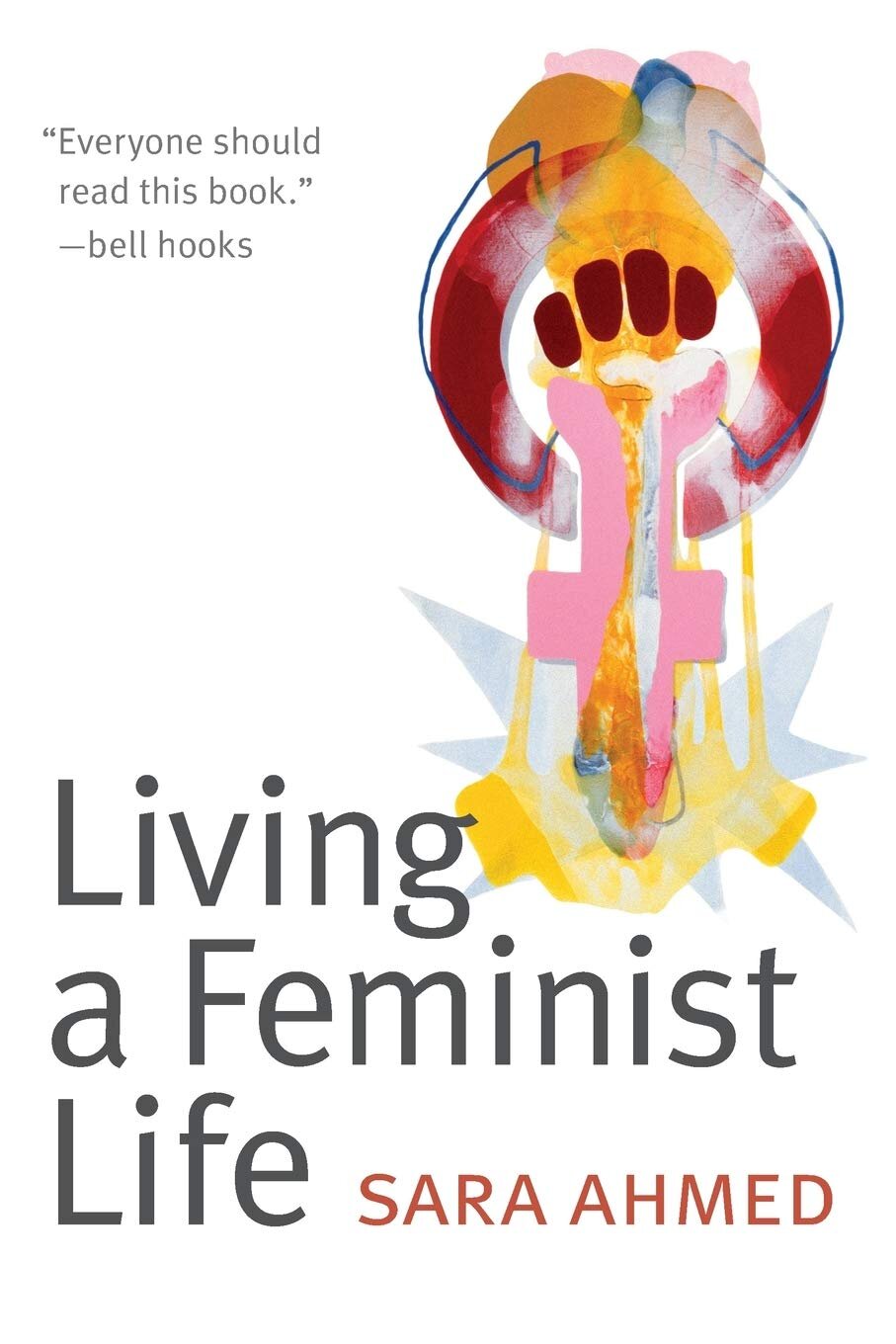This edition of Rally Reads comes from the amazing activist that is Ruby Bayley. If you don’t know what Rally Reads is, it’s a series of blog posts where we ask the people who’ve had the biggest impact on us to share the books that have had the biggest impact on them. And to explain why.
In this edition Ruby takes us through a reading list that explores strategy, anger, feminism and protest. Ruby describes herself as a fundraiser and feminist organiser. She’s raised hundreds of thousands of pounds for good causes in her career and is a fundamental believer in the art of protest. As are we.
We first met Ruby in the aftermath of her 2019 article blowing the lid off the issue of sexual harassment in the non profit sector. Ruby Bayley: It's time to face up to sexual harassment in fundraising. In the years that we’ve known her we have been constantly inspired by her drive to right the wrongs of the non profit sector across a whole range of issues. We’re proud to know her and proud to collaborate with her from time to time.
Onto Ruby’s reading list...
Emergent Strategy: Shaping Change, Changing Worlds (Adrienne Marie Brown).
“Change is constant”
This book fucked me up in so many good ways. It hits this sweet spot between the desire for more liberated and caring relationships with ourselves, our friends, our families, our communities and our earth and organising for social justice. AND it advocates for a refreshingly holistic and non-linear approach to both. Adrienne Marie Brown defines emergent strategy as “strategy for building complex patterns and systems of change through relatively small interactions” and as “an adaptive, relational way of being”.
“Move at the speed of trust. Focus on critical connections more than critical mass - build the resilience by building the relationships”
Essentially, the approach is about creating conditions in which a group of people can engage in relatively simple interactions and generate many possibilities and then explore and adapt these possibilities into actions which move us toward a shared goal or better world.
“There is a conversation in the room that only these people at this moment can have. Find it”
I had an overwhelming sense once I’d read it that it answered questions I didn’t even know I had. It’s a gorgeous, meandering work of spirituality with a load of helpful tools for organising, decision-making and facilitation thrown in. A must read for organisers/movement builders/all human beings.
Rage Becomes Her (Soraya Chemaly).
Anger gets a bad rep. This book is an exploration of the white supremacist, capitalist, patriarchal reasons why and the impact that repressing our anger can have. It’s taken me a long time to embrace the fact that my motivation as an activist is rooted in rage rather than ‘passion’ (and it’s an even less acceptable emotion if you’re not white).
“Anger is an assertion of rights and worth. It is communication, equality, and knowledge. It is intimacy, acceptance, fearlessness, embodiment, revolt, and reconciliation. Anger is memory and rage. It is rational thought and irrational pain. Anger is freedom, independence, expansiveness, and entitlement. It is justice, passion, clarity, and motivation. Anger is instrumental, thoughtful, complicated, and resolved. In anger, whether you like it or not, there is truth.”
Chemaly argues that anger is in fact one of our most important tools against oppression and that it can be harnessed for personal and political change. I personally found this incredibly liberating. I’m a better storyteller, fundraiser and campaigner as a result of heeding her advice.
"If you are not outraged, you are not paying attention."
Living a Feminist Life (Sarah Ahmed).
You’ve probably gathered by now that I am fascinated by the relationship between our behaviours, experiences and healing as individuals and the social change we seek to create in the world. Contrary to what the title might imply, this book couldn’t be further from a ‘feminism how-to manual’ (sorry to disappoint).
“The question of how to live a feminist life is alive as a question as well as being a life question.”
This book examines what an intersectional feminist existence means to us as people, and to the world around us: how we can grow as individuals whilst trying to push the world to grow too. Pushing us to reflect and continue reflecting in ways that just blow my mind. Her analysis of feminist theory is rooted in ordinary experiences and everyday struggles and feels like a real bridge between the theory and ordinary life. It’s a brilliant guide for those of us trying to translate complex problems and solutions into meaningful calls for action. Get on it.
And a good coffee table book, ‘cause who can resist those: How to Do Good: Essays on Building a Better World (Philanthropy Age).
I regularly dip into this beaut when I need a pick me up. It’s a collection of extraordinary personal stories from thought leaders, celebrities, politicians, Nobel prize winners, social entrepreneurs, philanthropists and others about doing good stuff. Great for when changing things just. feels. impossible.
ON RUBY’S 2021 READING LIST:
The Good Ally (Nova Reid)
Pleasure Activism: The Politics of Feeling Good (Adrienne Maree Brown)
How We Show Up: Reclaiming Family, Friendship, and Community (Mia Birdsong)
Undrowned: Black Feminist Lessons from Marine Mammals (Alexis Pauline Gumbs)
Now We Have Your Attention: The New Politics of the People (Jack Shenker)
Huge thanks to Ruby for sharing her inspiring reading list. We hope you found it useful and that you add some of these books to your own list. Please don't be surprised if we approach you and ask you for yours…
Main photo by Kimberly Farmer on Unsplash





